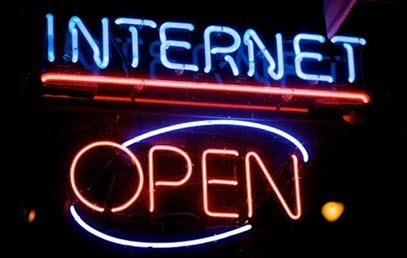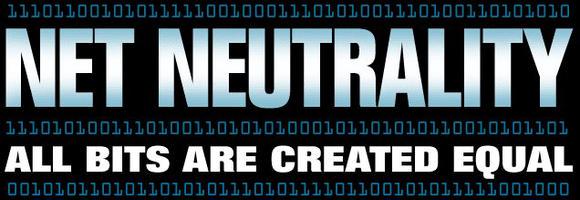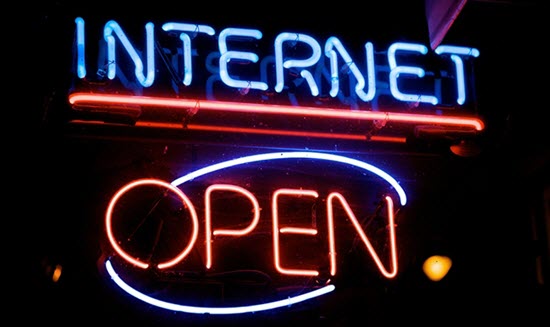What is Net Neutrality?
In basic layman’s terms, Net Neutrality expounds the principle that everyone, regardless of, position, power or wealth, should be treated equally through the internet. One of the main catalysts of the Net Neutrality movement has been the US Internet Service Providers’ proposal to provide faster internet connections for those willing to pay a premium, thereby creating fast lanes for the wealthy, while mere mortals languish in the slow lanes.
To use a motoring metaphor – Imagine two roads both leading from A to B. The first is a narrow, one lane road with a speed limit of 30mph costing $30.00 to travel on. The second, is a magnificent 6 lane highway with a maximum speed of 110mph but this road costs $300.00 to travel on. That’s basically the sort of system ISPs have been hinting at introducing.
Net Neutrality Brings Stricter Regulation
The FCC (Federal Communications Commission) in the US has recently voted in favor of maintaining Net Neutrality. The FCC’s decision involved reclassifying broadband internet as a “Title ll” public utility which subsequently opens it up to much stricter regulation. The main goal of which is to ensure that access providers can’t privilege or favor certain websites and services over others, through paid or other arrangements.
These new regulations include the following main rules:
- Broadband providers cannot block or speed up connections for a fee
- Internet providers cannot strike deals with content firms, known as paid prioritisation, for smoother delivery of traffic to consumers
- Interconnection deals, where content companies pay broadband providers to connect to their networks, will also be regulated
- Firms which feel that unjust fees have been levied can complain to the FCC. Each one will be dealt with on a case by case basis
- All of the rules will also apply to mobile providers as well as fixed line providers
- The FCC won’t apply some sections of the new rules, including price controls
Net Neutrality – For & Against
Advocates for Net Neutrality are obviously popping corks following the FCC’s decision. To no-one’s surprise, Microsoft has issued the following statement:
We applaud the FCC’s decision to preserve the fundamentally open nature of the Internet and look forward to reading the Order and rules.
While Steve Wozniak, Apple co-founder, told Bloomberg:
Today’s decision goes a lot further than Net neutrality. Title II regulation means oversight of bad behavior, not meddling or controlling, but looking for bad behavior. This is a victory for the consumers, the average Joes, an indication that the people can sometimes win.
Obviously, Internet Service Providers are not at all happy with this decision, and I seriously doubt we’ve heard the end of it just yet. The US Telecommunications Industry Association has already announced that broadband providers would take “immediate” legal action over the rule changes.
Far be it for me to opine on US policies but this decision can only be viewed as a huge victory for the little people. The only thing that gives me slight pause is the prospect of government gaining greater controls over the internet, we are all aware of government’s propensity for awful decision making. However, if that’s what it takes to reign in the Internet Service Providers, so be it.
I wish the Australian government would do something similar with our banking system… but that, as they say, is another story.



Strongly disagree with you, Jim. If the ever-growing threat to our personal liberties by big government only gives you “slight pause”, then you and I have very different world-view perspectives.
I am on record as a very strong and vocal opponent of government interference and control, but that, in my opinion, is not the big picture here.
As I said, I don’t really feel comfortable opining on US politics but it seems to me that, in this case, if the ISPs weren’t more strictly regulated and just allowed to go on doing whatever they want, the situation would have ended up with extremely detrimental consequences for a heck of a lot of US internet users.
Are you not of the opinion that the internet should be equal for all people?
I’m all for paying for what you get, not or one great communal heap. If I can pay for it, why cant I have better service?
If my tax dollars built the internet, I’d agree with your poor analogy of the roads. Regrettably for your case, there are toll roads in some states connecting to non-toll roads because not all states took as much federal money to build their required interstates, instead opting for local control and revenue.
This is merely another power grab, another step towards the nationalization of the ISPs not unlike what Obamacare will eventually do to the health care industry. Wozniack’s views are hardly surprising, since he never saw a progressive, statist cause he didn’t like,
Do you believe telephone service in the US is nationalized?
What the current rules have done is move ISP’s into the same control group as telephone providers, referred to as Title II.
I’m all for freedom and keeping government out of my business, but the internet is as important – no MORE important – than the telephone system has ever been or will ever be! While Title II does bring more oversight of ISP’s it is all about the consumer and considering the overwhelming amount of monopolization in the ISP arena I believe it is long overdue and much needed.
Perhaps my roads analogy was a poor one, no argument there. But you’ve tended to take it too literally John, it was meant merely as a guide to help those who might be struggling to understand the concept of net neutrality… that’s all.
I use my vehicle on the road and pay registration related to the vehicle, equal share, not discriminating between wealthy and poor people.
My telephone use operates on a similar set of rules, wealthy or poor, all pay the same.
Of course the Internet should operate the same way, and I agree with Jim.
Having read both sides of the ‘argument’ over the past few weeks it appears that those who disagree with the decision want to revert to the old ‘class system’, the wealthy who, ‘have” and Mr & Mrs Joe Public who ‘have not’.
We do not want the first class, second class railway carriage system for the Internet.
Jonno
Exactly!! Well put Jonno.
Since we’re using the road analogy, have you heard of HOT (High Occupancy Toll) lanes? Them that pays get the fast lane. Now, shall we demand an open highway?
Paying extra to get faster ADSL or NBN speeds is with us and will stay. My issue is with the painful cost of mobile Internet usage. I don’t use a mobile phone for Internet but I do have one of those mobile router devices that can serve a wireless network to a holiday unit via a 3G/4G mobile connection. Telstra charge $180 for 12 GB of data with a one year use-by date – smaller amounts have shorter use-by dates. That level of profit-taking is absurd. The mobile data area needs fixing …..